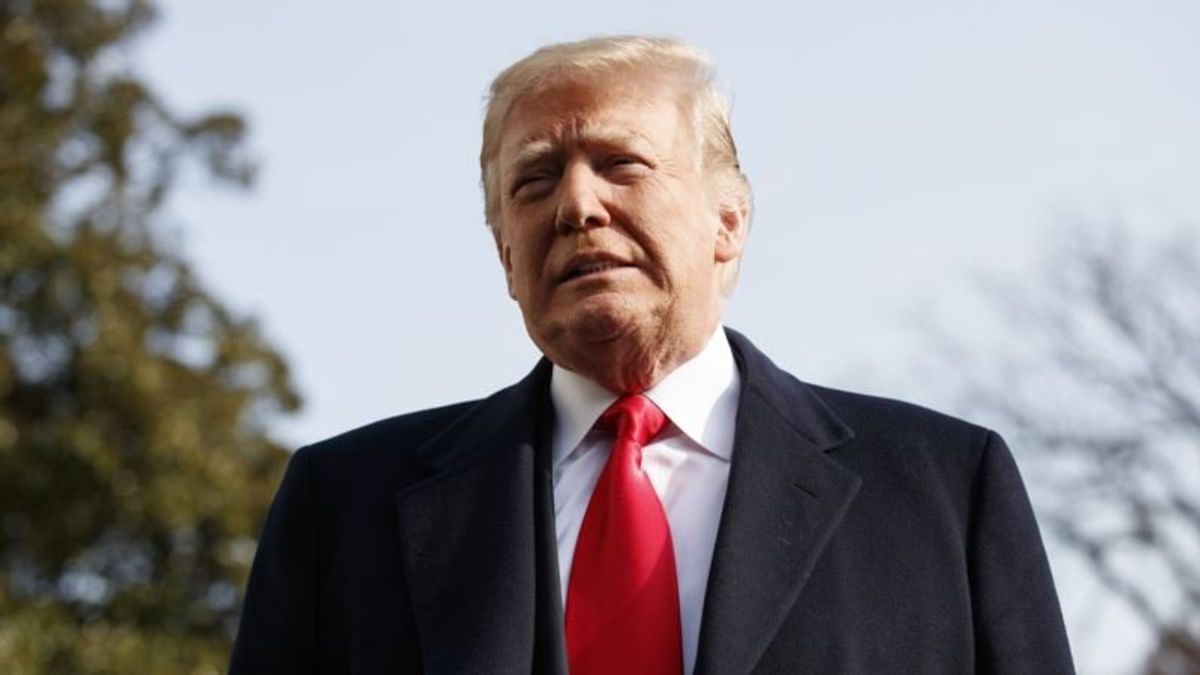
For Several Reasons, Democrats Cautious About the ‘I’ Word
For Several Reasons, Democrats Cautious About the 'I' Word

WASHINGTON —
Some Democrats who will take the House majority in January are willing to say that President Donald Trump may have committed impeachable offenses. But that doesn't mean they will try to impeach him — at least not yet.
For several reasons, Democrats have been extremely cautious about the "I" word. They know it could backfire politically, and many of them were in office during President Bill Clinton's impeachment 20 years ago. New York Rep. Jerry Nadler, the top Democrat on the House Judiciary Committee and the panel's likely incoming chairman, has called impeachment a "trauma."

Nadler told CNN on Sunday that if it is proved that Trump directed his former lawyer to commit campaign finance violations, as was suggested by special counsel Robert Mueller in a new court filing, he believes it would be an impeachable offense. But Nadler added, "Whether they are important enough to justify an impeachment is a different question."
It's unclear whether the distinction between an impeachable offense and impeachment itself will satisfy those in the Democratic base who are eager to kick Trump out of office. But Democrats are walking that fine line, for now.
Five reasons Democrats aren't ready to impeach Trump:
Other shoes to drop
In filings on Friday, Mueller's prosecutors asserted that Trump's former lawyer, Michael Cohen, committed campaign finance violations "in coordination with and at the direction of" Trump. It's the first time they have directly tied Trump to a federal crime.

The violations stemmed from payments Cohen made to buy the silence of porn actress Stormy Daniels and former Playboy model Karen McDougal. Both women alleged they had affairs with Trump, which the White House denies. Trump also denies knowing about the payment, but the filing contradicts that claim.
There is likely more to come from Mueller. Charges are expected related to emails stolen during the 2016 presidential election that could implicate some in Trump's circle. And Mueller could complete a larger report at the conclusion of his investigation.
If Democrats move to impeach Trump, it will likely be for more than just campaign finance violations.
It could backfire
Democrats are cognizant of the price that Republicans paid for Clinton's impeachment 20 years ago. Both Nadler and House Democratic leader Nancy Pelosi were in Congress at the time, and Nadler sat on the Judiciary panel. Republicans were seen as overreaching, and that helped boost Clinton's poll numbers and win Democrats seats in the 1998 midterm election.

Pelosi was also under pressure to impeach President George W. Bush in 2006 when she first became speaker of the House. She has said that if Democrats had spent their first two years in the majority trying to impeach Bush, voters may never have elected Barack Obama as president in 2008.
Republicans are also aware that impeachment could backfire.
"I think it'll help the president get re-elected," Senate Majority Leader Mitch McConnell said on the possibility Democrats would move for impeachment. "This business of presidential harassment may or may not be quite the winner they think it is."
Republican buy-in needed
Pelosi has called impeachment a "divisive activity" that needs buy-in from both parties to work. "If the case is there, then that should be self-evident to Democrats and Republicans," she said.
Nadler has said the same, that there would have to be at least some Republican support if they take the step of initiating impeachment proceedings.
If the Democrats hold to that, it would mean Mueller would have to produce a lot more evidence of Trump's involvement in crimes. No Republicans have so far come close to supporting impeachment, and many moderate Republicans critical of Trump lost their re-election races in November.
Checking Trump in other ways
Democrats have tried to keep the public focus on investigating the president and moving forward on policy like improving infrastructure and lowering health care costs.
Several Democrat-led committees are expected to initiate investigations of Trump and the White House, including on whether Russians used laundered money for transactions with the Trump Organization. They will also try to protect Mueller's investigation through legislation.
Freshmen lawmakers who won competitive districts and handed Democrats the majority have made it clear they don't want to focus on issues like impeachment.
Democratic Rep.-elect Jeff Van Drew of New Jersey said shortly after the election that his constituents "don't just want to see us argue and investigate and have hearings."
What happens next
In the end, even if the Democratic House approved articles of impeachment, the Constitution requires a two-thirds vote of the Senate to convict. And that would be unlikely in a Republican-led Senate.
And some Senate Democrats might be reluctant to support impeachment, as well, since several of them represent swing states.
"My concern is that, if impeachment is moved forward on the evidence that we have now, at least a third of the country would think it was just political revenge and a coup against the president," said Sen. Angus King, I-Maine, on NBC's "Meet The Press" on Sunday. "That wouldn't serve us well at all. The best way to solve a problem like this, to me, is elections."
 Mueller Probe Points to Numerous Links Between Trump Associates, RussiaNext PostGoogle CEO to Tell Lawmakers Tech Giant Operates ‘Without Political Bias’
Mueller Probe Points to Numerous Links Between Trump Associates, RussiaNext PostGoogle CEO to Tell Lawmakers Tech Giant Operates ‘Without Political Bias’





